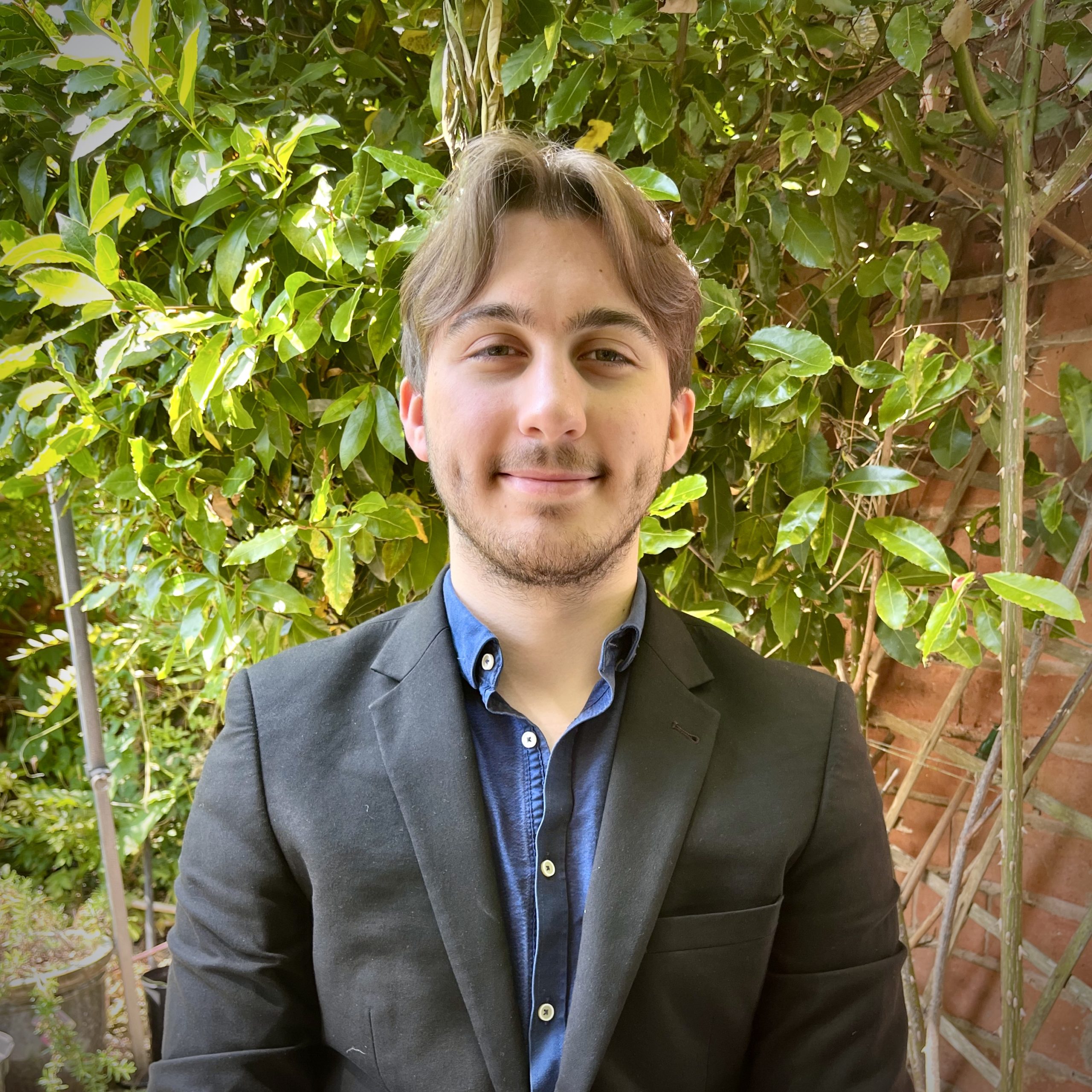The next finalist of the 9th European Composer Competition we want you to meet is Jack Ledger-Dowse (England), the composer of Ascension.
Jack Ledger-Dowse (England)
Date of birth: 16th January 2002
Birthplace (or Residence): Cork, Ireland. Residence London, UK.
Music Education: Royal College of Music (BMus Hons).
Plays with (orchestras/bands): nobody currently, but I have played with the CBSO Youth Orchestra as a trumpeter and also did National Youth Orchestra of Great Britain as a composer.
Other musical activities: I also love composing to picture and have scored many film projects over the last few years. I’m the co-president of the Royal College of Music’s Film Scoring Society, and conducted an interview with lord of the rings composer Howard shore as part of the role. I also teach music privately and occasionally to classrooms.

Can you tell something about your composition Ascension?
The piece features tense and rumbling fast passages, lyrical and emotive thematic writing and ethereal, spacious moments sprinkled with delicate percussion. It aims to showcase the just how many different sounds that a band comprised of mostly of a single instrument family can really achieve, exploring the piercing high ranges of the cornets, the rumbly depths of the tubas, and even making use of humming sounds. After journeying through several different sound worlds, it gathers momentum and ends emphatically, with the full force of the band ending the piece in a powerful climax.
Do you compose from your ‘head’ or ‘heart’?
I’ve long believed that composition, as with many other facets of life, involves a combination of the head and the heart. The head may be primarily responsible with the plethora technical aspects of composing, but it can only get one so far. A musical experience in many ways transcends the black-and-white logic of things like mathematics and computer code, so as a composer, one must allow our heart to have influence. Sometimes our work may appear to be technically ‘correct’, but if it doesn’t ‘feel’ right, it isn’t right, and it must change in order to become right.
What (or who) influenced you in composing?
I’ve realised that many of my stylistic influences come from music I was exposed to in my earlier teenage years. I spent many years in orchestras and bands as a trumpeter, where I was exposed to the music of John Williams, and also went through a couple of long phases of being an avid Minecrafter. At the same time, composers like Ludovico Einaudi and Hans Zimmer began forming a large space in my listening habits, and I later fell in love with Mahler and Shostakovich’s symphonic works.
How did you start composing? Was it a logical next step after playing/studying music?
I started composing at the age of 13 on the free music software Musescore, not too long after I completed my first music theory exam, which may have had something to do with it. My first few works, which will never see the light of day, were obvious rip-offs of composers I liked. Soon enough I started to pay more attention to my technique and develop some of my own preferences.
Do you use a pattern when composing? Hours at a time or whenever you find the time, by day or night, in complete seclusion or …
I have got used to having to compose at effectively any time of the day. Having to juggle my composing time with my many classes, modules and other obligations both in and not in my degree means that I need to grab time whenever I can!
The final of the European Composers Competition will be played by the Cory Band joined by the European Youth Brass Band, Thursday 2 May in the Palanga Concerthall at 20:00.
Buy your tickets.
Preparations for EBBC 2024 Palanga is partially financed by Lithuanian Council for Culture.
